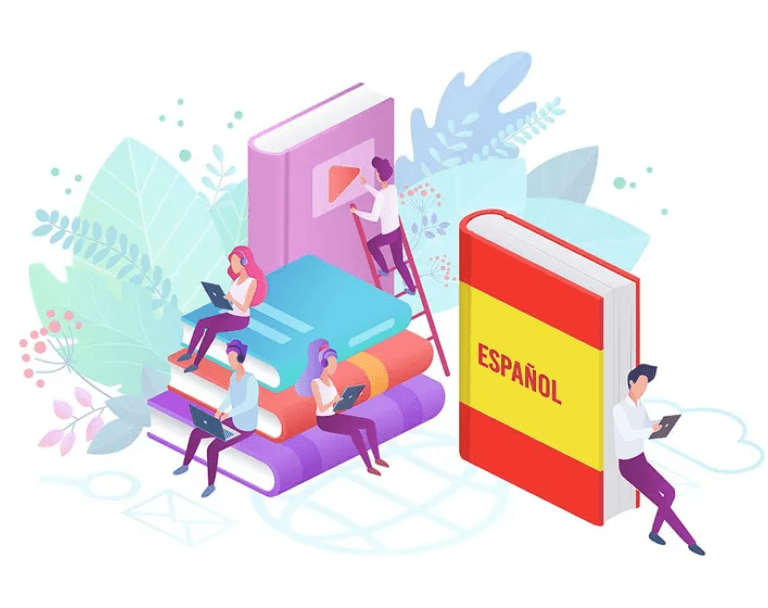The True Benefits of Learning Spanish

Learning any new or foreign language is a great way to expand your mind and vocabulary, so what makes Spanish unique?
Like other Romance languages (such as French and Italian), Spanish is derived from Latin, the language of Ancient Rome. It has been evolving for thousands of years and is now spoken by people from a variety of cultures and backgrounds. From the Iberian Peninsula to South America, Caribbean islands, and even parts of Africa—Spanish is spoken worldwide. For people who study Spanish, an understanding of the language offers greater insights not only into words and grammar, but also into an extensive history that spans multiple continents and generations.
Why Learn Spanish?
According to U.S. Census data, Spanish is the second-most spoken language in the United States after English. Many people in the United States are native Spanish speakers and/or consider Spanish to be their first language, and this number continues to grow. Speaking Spanish in America allows you to communicate with millions across the country, making it easier to connect both personally and professionally.
The language also comes in handy when traveling outside of American borders. With over 490 million Spanish-speakers across the globe, those who learn Spanish are able to build relationships outside of their English-speaking network, giving them options that monolingual English speakers may not have.
Benefits of Speaking Spanish in the Workplace
Ever considered taking your career international? In workplaces especially, being bilingual is a highly sought-after skill. Employees who are bilingual are able to better communicate with Spanish-speaking clients and handle foreign affairs. Even if you’re not planning on going global, there is plenty of need within the United States for Spanish-speaking employees in various industries, including hospitality, marketing, education, government, non-profit organizations, and more. Job boards like Indeed.com list tens of thousands of jobs for which Spanish language skills are required or preferred.
Colleges and universities are now preparing students for a globalized future by offering majors like Spanish Business, in addition to the traditional Spanish major and Spanish minor. No matter your professional goals, learning a second language gives you the opportunity to take your career to another level. As they prepare to enter the workforce, many college students are pursuing either a second major or a minor in Spanish to improve their marketability in their field of choice.
The World is Your Oyster
Year after year, destinations like Cancύn, the Caribbean, and Barcelona top the list as some of the world’s most popular travel destinations. Apart from their allure among tourists, these hotspots share in common a predominantly Spanish-speaking population. For visitors who are unfamiliar with the language, navigating these locales can be challenging and often requires the services of an interpreter (a career field that is projected to grow at a rapid rate over the next several years). For English-speaking travelers, even the most conversational Spanish can help to make your stay in a Spanish-speaking country much less stressful—and save you a lot of confusion.
Is Learning Spanish Worth It?
Studying Spanish provides a wealth of opportunity. There are many ways to incorporate the Spanish language into your travels, career, and day-to-day life—and beginning your educational journey is just the first step.
While learning a new language in any setting is beneficial, there are a number of benefits to taking college Spanish classes. College and university Spanish professors are highly trained native and/or fluent speakers. They have been vetted by professionals and fellow faculty, so you can trust that the person teaching you will be well qualified to do so. The curriculum will involve not just the language itself, but also elements of history, geography, and sociology to ensure that you’re prepared to apply your knowledge in the real world, while avoiding cultural appropriation and faux pas.
Spanish courses at the college level also typically involve a study abroad experience, so you’ll be able to immerse yourself in the culture of a place where Spanish is the primary language. You’ll have opportunities to gain real-world exposure to written and verbal Spanish, and you’ll gain a newfound appreciation for the rich history of the language and its speakers worldwide.
Being educated by others who speak Spanish and are intimately familiar with its history is the best way to get the most out of your language learning experience.



